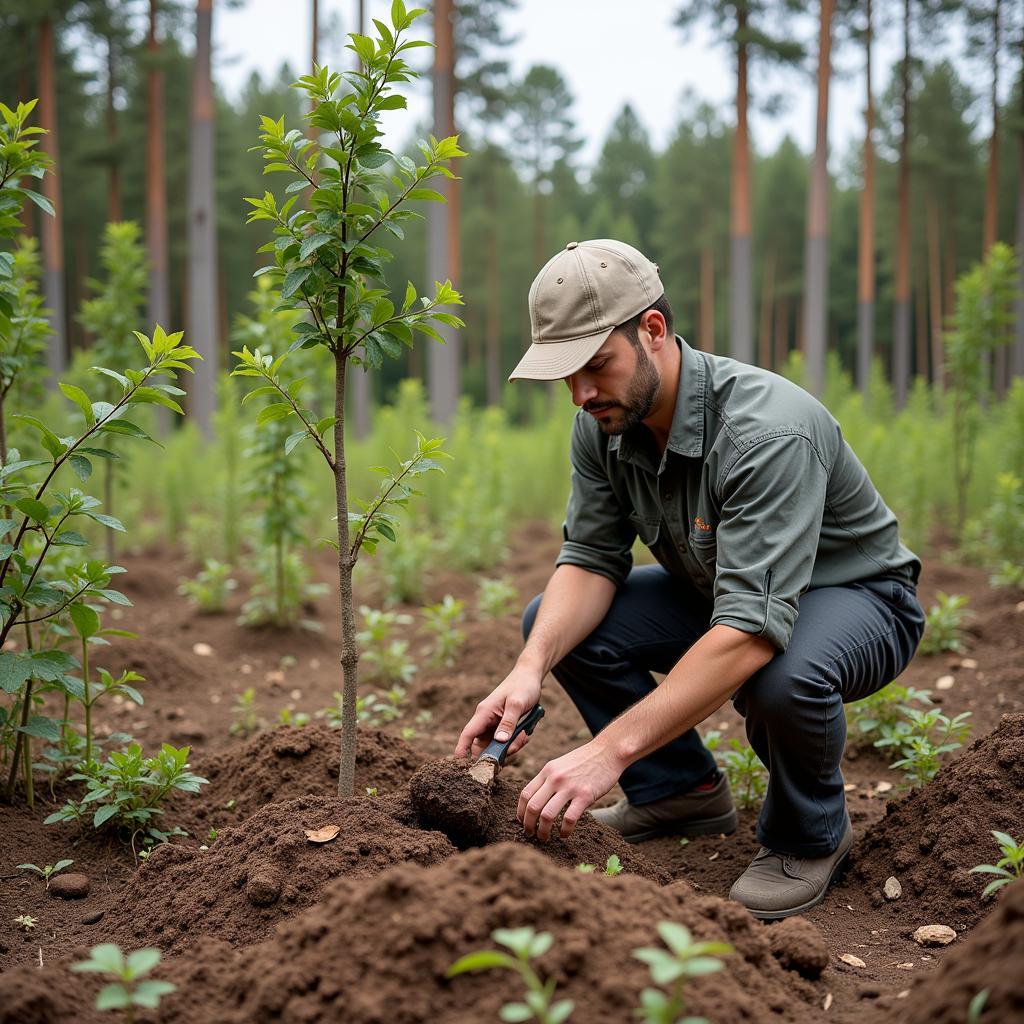Living Branches Jobs: Cultivating a Career in Nature’s Embrace
December 30, 2024Living Branches Jobs offer a unique opportunity to connect with nature and contribute to a greener future. These roles span a variety of fields, from arboriculture and horticulture to conservation and forestry, providing fulfilling careers for those passionate about the environment. Whether you’re a seasoned professional or just starting out, exploring living branches jobs can open doors to a rewarding and impactful career path.
Exploring the Diverse World of Living Branches Jobs
Living branches jobs encompass a wide range of specializations, each with its own unique set of responsibilities and rewards. These roles often involve working outdoors, interacting with plants and trees, and contributing to the health and beauty of our natural surroundings. From caring for urban trees to managing vast forests, living branches jobs offer diverse opportunities for individuals with varying skills and interests.
Arboriculture: The Art and Science of Tree Care
Arborists are the guardians of our urban forests, responsible for the health, safety, and beauty of trees in our cities and towns. Their work involves pruning, planting, diagnosing diseases, and providing expert care to ensure the longevity and resilience of these vital urban assets. Living branches jobs in arboriculture offer a chance to make a tangible difference in the urban landscape.
Horticulture: Cultivating Beauty and Bounty
Horticulture encompasses the art and science of cultivating plants for food, medicine, and aesthetic enjoyment. Living branches jobs in horticulture can involve working in nurseries, greenhouses, gardens, or even on large-scale agricultural operations. From growing vibrant flowers to nurturing nutritious crops, horticulturists play a vital role in enhancing our lives and sustaining our communities.
Conservation: Protecting Our Natural Heritage
Conservationists are dedicated to preserving and restoring natural ecosystems for future generations. Living branches jobs in conservation can involve working in national parks, wildlife refuges, or research institutions, focusing on protecting endangered species, restoring habitats, and promoting sustainable land management practices. These roles offer a chance to make a lasting impact on the health of our planet.
 Conservationist working on habitat restoration project
Conservationist working on habitat restoration project
Forestry: Managing Our Woodlands for a Sustainable Future
Foresters are responsible for the sustainable management of forests, ensuring that these vital resources provide ecological, economic, and social benefits for present and future generations. Living branches jobs in forestry can involve timber harvesting, wildfire management, reforestation, and protecting biodiversity. These roles offer a unique opportunity to work in close proximity with nature and contribute to the long-term health of our forests.
Finding Your Ideal Living Branches Job
The path to a fulfilling career in living branches jobs begins with exploring your interests and identifying your strengths. Research different specializations, connect with professionals in the field, and consider pursuing relevant education or training. With dedication and passion, you can cultivate a rewarding career in nature’s embrace.
Conclusion
Living branches jobs offer a diverse range of opportunities for individuals passionate about the environment. From arboriculture to forestry, these roles provide a chance to connect with nature, contribute to a greener future, and build a rewarding career. By exploring the various specializations and pursuing relevant education and training, you can cultivate a fulfilling career in the world of living branches jobs.
FAQs
- What qualifications are needed for living branches jobs?
- How can I find living branches jobs near me?
- What is the average salary for living branches jobs?
- What are the career advancement opportunities in living branches jobs?
- What are some of the challenges of working in living branches jobs?
- What are the benefits of working in living branches jobs?
- What are some tips for succeeding in a living branches job?
Common Scenarios and Questions
-
Scenario: A recent college graduate interested in a career in urban forestry.
-
Question: What entry-level positions are available in urban forestry?
-
Scenario: An experienced landscaper looking to transition into arboriculture.
-
Question: What certifications are needed to become a certified arborist?
Further Resources
- Check out our article on “Career Paths in Horticulture.”
- Explore our guide to “Finding Conservation Jobs.”
When you need assistance, please contact us by Phone: 0915117113, Email: [email protected], or visit us at: To 3 Kp Binh An, Phu Thuong, Vietnam, Binh Phuoc 830000, Vietnam. We have a 24/7 customer service team.